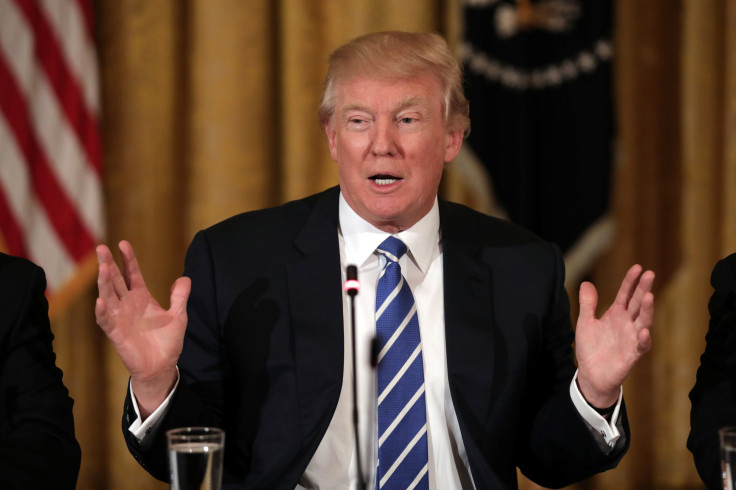Can China Stop North Korea War? Trump To Pressurize Beijing Amid Nuclear Threats

President Donald Trump is likely to pressurize China in a bid to stop North Korea's nuclear advancements and provocation, a South Korean think tank predicted Thursday. The Trump administration may impose secondary sanctions on Chinese companies to increase pressure on Beijing.
Tensions between North Korea and the United States escalated amid the reclusive country's missile tests, which it says were in response to the U.S.-South Korea military drills. The U.S. is also planning to build its military power amid North Korea's growing threats.
"The U.S. nuclear and military buildup has the potential of frustrating China's nuclear deterrence capability, thus it may pose tremendous pressure on China," Asan Institute for Policy Studies' researcher Go Myong-hyun said, according to Yonhap News Agency. "For a while in the future, the U.S. policy toward North Korea will be led by the Department of Defense, not the Department of State, putting military pressure to hold China in check rather than diplomatic means."
"For its part, South Korea should also continue its pressure on China under a solid South Korea-U.S. defense alliance, increasing strategic dialogue with China over what benefits or losses a unified Korean Peninsula may bring to China," the researcher said.
Read: Will Kim Jong Un Start A War With Trump?
The U.S. has sent an advanced military defense system to South Korea in response to North Korea's series of missile launches earlier this month. The move angered China as it believed that the deployment of the Terminal High-Altitude Area Defense system (THAAD) was a threat to its security.
"We solemnly object to South Korea and the U.S.' deployment of THAAD and will resolutely take necessary actions in order to safeguard our security interests," the Chinese foreign ministry said last week, hinting at a military response to the move. "Any consequences to follow the necessary actions should be bore by South Korea and the U.S. We strongly demand that the parties halt the THAAD deployment process immediately and not deviate to the wrong path any further."
The South Korean think tank believes that the Trump administration will use missile defense and economic sanctions against North Korea, but may newly add the element of pressuring China, which is likely to enhance the effectiveness of the U.S.' North Korea policy.
On Wednesday, Chinese Premier Li Keqiang called on his U.S. and Russian counterparts to resume intergovernmental discussions on how to address North Korea's nuclear missile, capable of targeting South Korean, Japanese or U.S. military bases in the region.
"It’s just common sense that no one wants to see chaos on his doorstep," Keqiang said during his annual press conference Wednesday. "So what we hope is that all the parties concerned will work together to de-escalate the situation, get issues back on the track of dialogue and work together to find proper solutions."
© Copyright IBTimes 2025. All rights reserved.





















